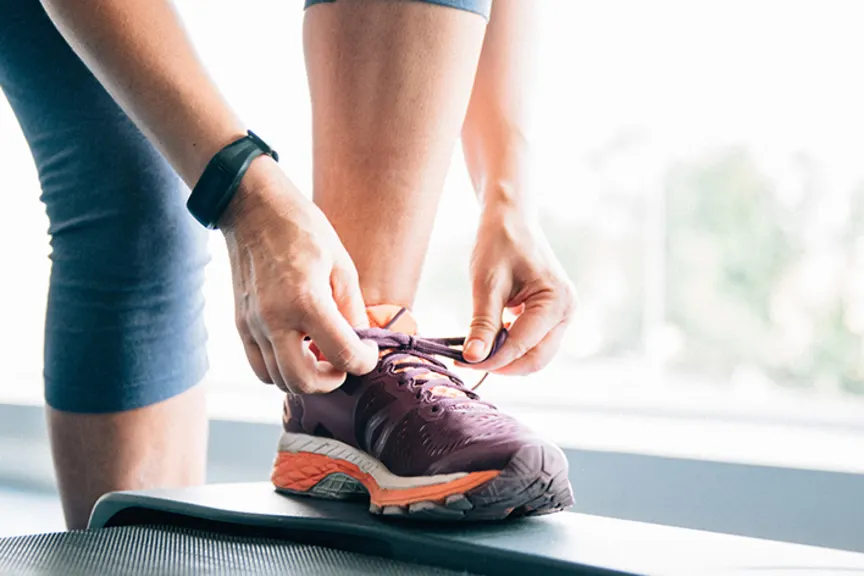Take a Morning Walk, Lower Your Blood Pressure

Lace up thosesneakers and hit the road, baby! New research published inHypertension, a journal of the American Heart Association, shows that walking at a moderate pace for 30 minutes each morning can help reduce blood pressure all day in adults who are overweight.
But wait, there’s more! More good news for women, that is: Frequent breaks from sitting throughout the day can further increase the blood pressure benefits of that a.m. exercise. Which is clutch, because blood pressure levels can reduce the risk for heart attack and stroke, issues that can significantly affect overweight folks.
This study, conducted in Australia, included people between the ages of 55 and 80, who took part in each of three different scenarios (in random order):
Uninterrupted sitting for 8 hours
前一个小时的坐30分钟的步行on a treadmill, followed by 6.5 hours of prolonged sitting
One hour of sitting before 30 minutes of walking on a treadmill, followed by 6.5 hours of sitting that was interrupted every 30 minutes with 3 minutes of light-intensity walking on a treadmill
Researchers controlled the participants’ diet during the study period and measured blood pressure and adrenaline levels throughout the day. Blood pressure, especially systolic blood pressure (the top number in a BP reading), was an average of 3 to 5 points lower for the men and women who exercised in the morning vs those who didn’t.
In women, morning exercise combined with frequent breaks in sitting resulted in even lower blood pressure readings, an additional benefit the men didn’t experience. The researchers speculate this may be because the women in the study were postmenopausal (which gives them a higher heart disease risk than younger women) but didn’t theorize why the older men didn’t have the same effect.
Previous studies have shown that breaks in sitting can lower blood pressure in people at increased risk of cardiovascular disease. Want more about the link between exercise and blood pressure? Check outThe Best Time to Exercise with High Blood Pressure.





